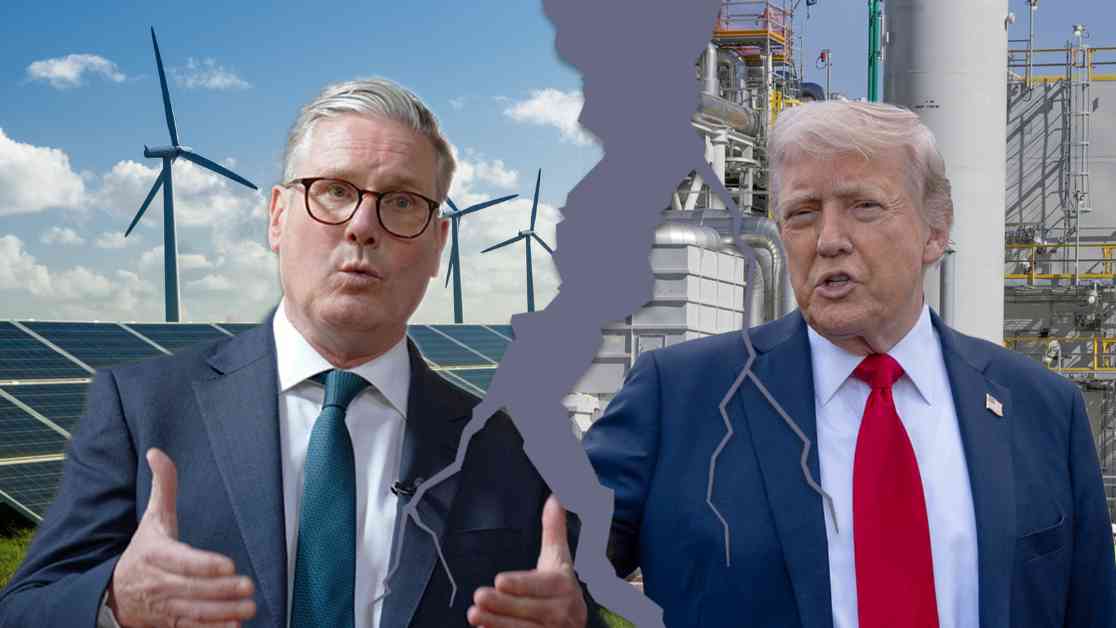Two worlds will collide in London today as the UK and the US lobby other countries with very different visions for the future of energy security. Labour will tell ministers from 60 countries gathered for its Energy Security Summit that the transition from fossil fuels to clean power will make energy more secure because it’s produced at home – as well as being a win for the climate. The stakes are high: just the small matter of stabilising the climate for years to come, as well as our energy bills. But hopes for the summit are modest, due to, unsurprisingly, Donald Trump. Trump turns up the heat with gas. The US president peddles a very different view of energy security: he wants to “drill baby drill” for as much oil and gas as possible and pull America out of the global climate fight. He isn’t sending his energy secretary Chris Wright to attend, but acting assistant secretary Tommy Joyce. More junior official will still espouse Trump’s vision to “unleash US energy dominance”, which basically means keeping the world hooked on US fossil fuels – good news for the world’s biggest oil and gas producer. This idea that the energy transition threatens energy security is taking root in the UK’s Reform party, but is at odds with the view of the Prime Minister Sir Keir Starmer, EU chief Ursula von der Leyen, who is also attending, and the United Nations. One report by RMI found solar and wind are the cheapest option for new electricity in more than 80% of the world. The UK government wants to work with America on a trade deal and some parts of the energy industry, like nuclear power. But underneath it will be hoping that the 60 other countries attending the summit will hold the line on ditching fossil fuels as fast as possible and boosting clean tech supply. That’s even more urgent as the UK tries to reduce its reliance on China, which currently dominates manufacturing of clean power infrastructure like solar panels and critical minerals. That’s also why the prime minister is today announcing £300m to help build wind turbines in the UK to reduce imports. But China itself is not attending – good news for rival America but a setback for the summit, given China’s outsized role in the clean industries of the future. Then there’s the real elephant in the room, which is Trump’s erratic tariffs and trade wars. No one knows how this will play out in the extremely complicated energy sector. Trump has ordered Europe to buy more of its liquefied natural gas as a way to avoid tariffs. Europe needs it: it’s running low on storage and Russian pipeline supplies are dwindling. But on the flipside, his policies could paradoxically hurt both Europe’s gas demand and America’s gas producers, caught between fears of a recession and shaky global demand. The UK’s reputation as a climate saint is not unblemished though, as it expands airports and moots further North Sea oil and gas after all. All this complexity and uncertainty forms the backdrop for the summit. Little concrete is expected to come from it – though the UK may use it to court investment. Other than that, we can expect little more than a paper summary on what energy security really means. But this is all about a fight for the narrative. And so if the IEA and other countries hold the line on clean power meaning energy security, the UK government will count that as a win.




